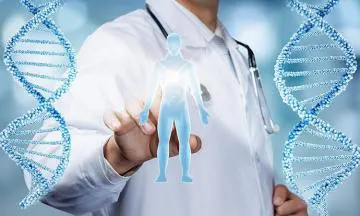

Women and Migraine What’s the link
It can be really tiring when you have a severe headache. You might not want to talk to anyone, don’t want to do any work, get irritable when someone tries to talk to you, just feel like being alone, in the darkness, and may want to just lie down. The headache might have great impact on your daily life. Chances are high that these distressing symptoms are indicating something more than a headache - A Migraine. Yes that’s what you are probably suffering from. You will be shocked to know that migraine is the third most common disease in the world and affects 3 times as many women as men.
If you have such headaches every time you get your menses, they are called the menstrual migraines. Studies show that migraine is most likely to occur in the two days leading up to a period and the first three days of a period. This type of migraine is thought to affect fewer than 10% of women.
What is Migraine?
A Migraine is severe, intense headache which might involve one or both sides of the head or it can involve any part of the head. Usually the pain is felt in the temples, behind the eye or ear. The pain may start in the morning or occur at any time of the day. It may last for few hours or for 1 or 2 days. You might get migraine once or twice a week or only once or twice a year. If its menstrual migraine, then you will get the migraine headache every time you get your menses.
What causes the Migraine?
Exact cause of migraine is not fully known. Most researchers think it can be due to changes in the substances produced in the brain, which can cause inflammation. The blood vessels in the brain swell due to inflammation causing pressure on the nearby nerves, and hence the severe pain.
In many women the migraine attacks may be triggered by:
- Hormonal changes during menstrual cycle - In women, it can be linked with drop in levels of female hormones, estrogen and progesterone. It happens because estrogen controls chemicals in the brain that affect a woman's pain sensation. More than half migraines occur before, during or after a women’s menstrual period. Women who have migraine around their period will have it every month at that time. But some women might have it at other times of the month also.
- Stress and anxiety- As women, there are so many things which can put you down and make you feel low like juggling between too many roles at a time - being a mother and wife, having a career, etc.
- Lack of sleep or too much sleep,
- Strong odors, bright light or loud noise,
- Red wine, caffeine,
- Foods that contain nitrates, monosodium glutamate, tyramine, aspartame,
- Changes in weather,
- Skipped meals.
Symptoms of migraine:
There are 2 types of migraine:
- Migraine with aura- in this the aura is like the warning sign in which the person comes to know that the headache is going to start. The aura can be like- confusion of mind, visual disturbance, stiffness of neck, limbs, difficulty in speaking, unpleasant smell.
- Migraine without aura- most of the people, between 70 to 90 per cent, will get migraine without any aura.
Diagnosis of migraine
The diagnosis is based on the description given by the individual, detailed physical examination and history taking. Blood test can be done to check for thyroid disease, anemia, or infections. Computed tomography (CT) scan or magnetic resonance imaging can be done to rule out brain disorders.
Migraine Treatment in Homeopathy: If you want long-term solution for migraine, then homeopathic treatment will definitely help. Homeopathy helps to treat the individual with holistic approach. No two individuals will present with same symptoms of migraine. So the homeopathic medicines vary as per every individual case. The medicines help to treat safely and effectively give long-term results.
Certain alteration in lifestyle might help reduce the frequency of migraines:
- Proper sleep,
- Avoiding or reducing stress,
- Drinking enough water,
- Certain foods can be avoided,
- Doing regular physical exercise,
- Getting in touch your doctor on regular basis can help avoid getting migraine attacks.




